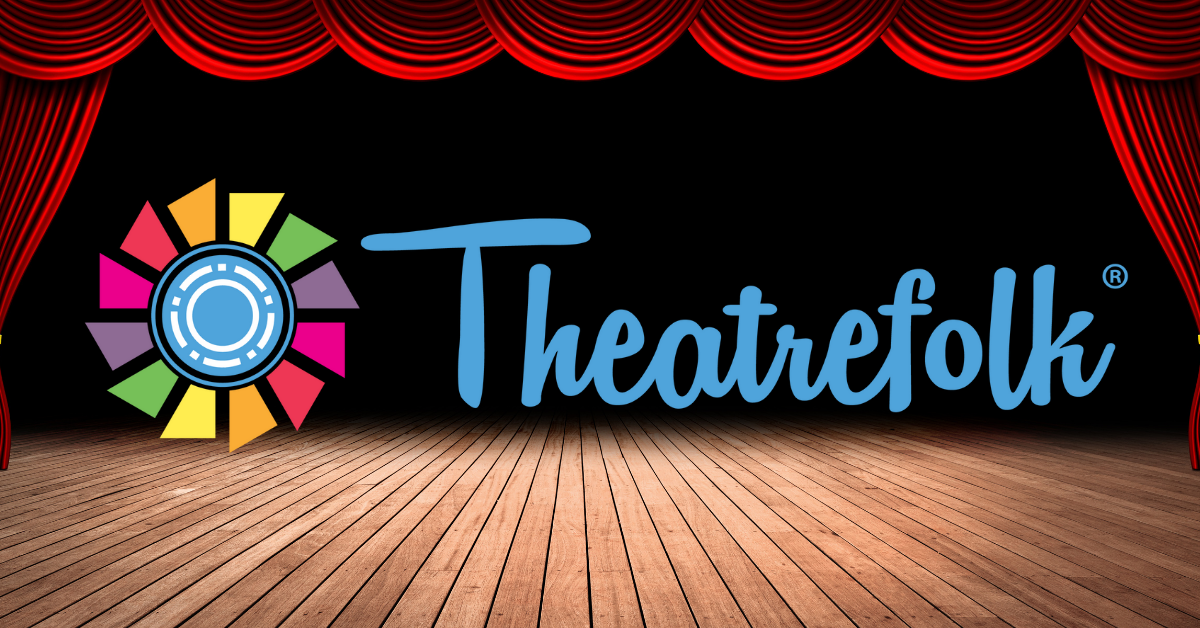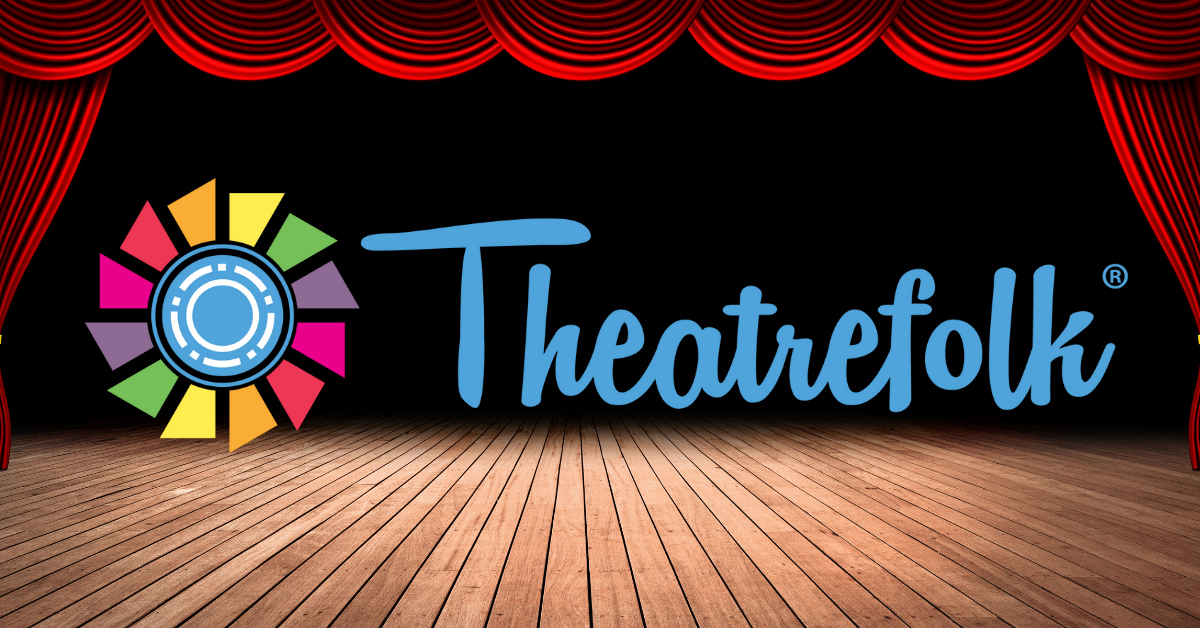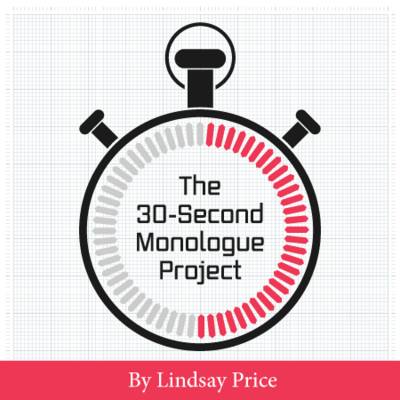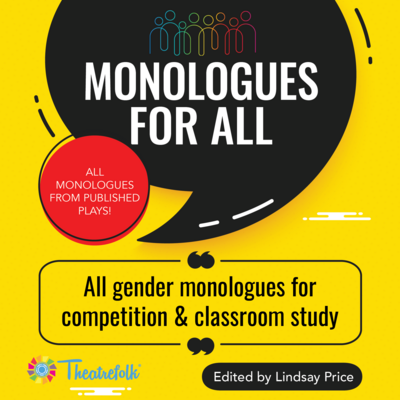Spread the Love: Competition Monologues Book Two
Katie Dalrymple, theatre teacher at Florence High School helps Lindsay spread the love for Competition Monologues: Book Two.
Recorded live at the Alabama State Thespian Festival.
Transcript
Lindsay: Katie!
Katie: Yes, Lindsay?
Lindsay: We are here at the Alabama State Thespian Festival, are we not?
Katie: Yes we are, where we love to have you.
Lindsay: Do you know I’m gonna get this on tape because here we are, this is “Spread the Love” of our video series. The Alabama State Thespian Festival is bar none by far my favorite festival, because we’re treated so sweetly. The students, I’ve had the most intense playwriting students who are just so interested in doing what they do. And stay right there because I want to put this on the tape, too. I’m coming back, I’m coming back!They gave me a scarf. I have a scarf! And I love it. Very much. And I’m very pleased and proud to wear it. So you guys are really sweet to me!
And so last night you caught me.
Katie: I did.
Lindsay: And you mentioned that the competition monologue book–
Katie: Book two, yes.
Lindsay: Book two, yes, a nice big book, that it worked really well for you, and you did a really neat thing with it, which is really why I wanted to talk to you today. What did you do with it?
Katie: Well, I teach, the way my theatre classes are set up, we have a freshman academy. So when I go over to the freshman academy, I treat them, they’re a little younger, a little less mature on things, so I took the book and we went monologue by monologue. We did character analysis and each person in the classroom performed one piece from the book, cover to cover.
Lindsay: And how did that work? Did some of them find because there’s a great variety of competition monologue books – some harder, some not so hard?
Katie: I do know the level of my students, and I definitely assigned the harder ones to my more advanced, and then I actually have some students with some learned disabilities too, so the shorter monologues were very easy for my students with dyslexia and kids who are unable to memorize, so I liked that there were the smaller, one minute, one and a half minute pieces, when in traditional monologue books you find four, five six minute pieces that are very hard for students with disabilities to learn.
Lindsay: Was it helpful that, because it’s very important to us in a monologue book that they were all of high school age–
Katie: Yes.
Lindsay: Was that helpful?
Katie: Yes, it was very helpful. I didn’t have to worry about cutting out sexual content, language, so it was nice not having to worry about “Ohh, when I make a copy of it, let me mark out those words.” I mean, you know. And I don’t have to say, “Now, use your discretion about saying certain things.” It was great not having to worry about any of that.
Lindsay: It’s very important to us, that’s something we really pay attention to. So it was so cool that you were able to use the book in a class in that way. Do they use them in IEs or for auditions or anything?
Katie: Actually, three of my students who are here used the audition pieces from there before, at SETC and different things.
Lindsay: That’s great! Thank you so much, Kate!
Katie: Thank you!
Lindsay: That’s all I wanted to say, and that’s it on “Spread the Love.” Thank you very much!
Related Articles
The 30-Second Monologue Project
by Lindsay Price
Give students the confidence, skills and tools they need to master the monologue with The 30-Second Monologue Project. This four-lesson unit guides students from the first moment to a successful performance.
Monologues for All
by Lindsay Price
Many monologue books have monologues with only male- or female-identified characters. This resource allows students to infer the identity of the character.





